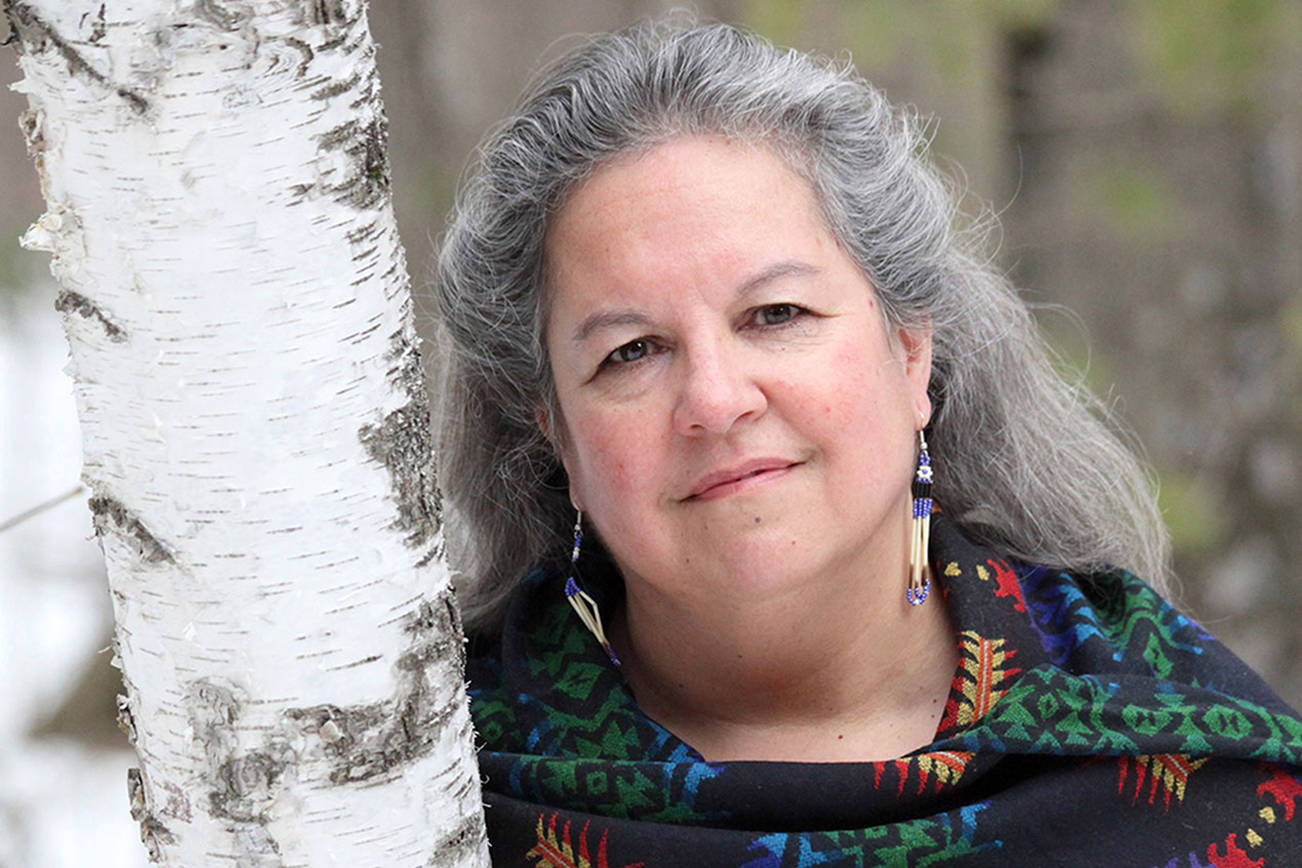
CHIMACUM — From “So You Want to Talk about Race” to “Braiding Sweetgrass,” the Racial Justice Book Club is a place to read, think, feel and converse.
“I want to bring people together. And I think there’s room for everybody,” said Anya Callahan, who began the club at Finnriver Farm & Cidery face to face last summer and now via the online Zoom platform.
The group is open to new participants, and it has chosen “Braiding Sweetgrass: Indigenous Wisdom, Scientific Knowledge and the Teachings of Plants” by Robin Wall Kimmerer as its next book.
The 7 p.m. meeting July 2 will delve into the first half, and the Aug. 6 meeting the second half.
For information about the book or about joining the 90-minute discussions, email [email protected]
“Sweetgrass” is the club’s first title by an indigenous woman; it follows books and articles by Black authors, including Angela Davis’ “Are Prisons Obsolete?” and Ta-Nehisi Coates’ “The Case for Reparations,” which ran in the Atlantic monthly in 2014.
When the club began meeting a year ago, it started with “So You Want to Talk about Race” by Ijeoma Oluo and drew some 20 readers to the farm’s Cider Garden gathering space.
In “Sweetgrass,” Kimmerer explores humans’ relationship with nature, and especially how our connections can heal and grow stronger.
“What happens to one happens to us all,” she writes. “We can starve together or feast together. All flourishing is mutual.”
“It’s a book that’s followed me. I’ve wanted to read it for a very long time,” said Callahan, adding that Kimmerer’s work resonates at Finnriver and in the surrounding community.
Callahan is an employee on the farm, which was built on the ancestral homelands of the local indigenous tribe.
Chimacum Creek, which flows through the farm, is named for the Chimakum, who lived in that part of the Olympic Peninsula through the middle of the 1800s.
“We’re working to acknowledge the truth of the land we live and work on,” Callahan said, “and the original stewards of the land, the Chimakum and S’Klallam people.”
“Sweetgrass” follows “My Grandmother’s Hands: Racialized Trauma and the Pathway to Mending Our Hearts and Bodies,” therapist Resmaa Menakem’s book for people of all cultures.
The Racial Justice Book Club devoted three months to it as “it’s not a book you want to rush through,” Callahan said.
Each chapter ends with a “body practice” that can be part of the reader’s healing process.
White bodies, Black bodies, police bodies: Menakem writes that we all carry trauma inside us, be it generational or from events in our own lives.
The author, a social worker and counselor, also addresses how law enforcement professionals suffer trauma.
“Including police in this conversation is essential,” Callahan said.
Kathy Stevenson, a 40-year Port Townsend resident, joined the book club last summer — with some trepidation. It was her first discussion group of this kind, so she wondered whether she’d have to deliver some sort of book report, as though she were back in school.
“It was never that way,” she said, adding that the participants are supportive of one another, and Callahan is a skilled facilitator who led a guided meditation as part of the “My Grandmother’s Hands” discussion.
Stevenson said Menakem’s book opened her mind to a new perspective on racism and trauma.
“The trauma in our bodies affects everything we do,” she said, “and if we’re not aware of it, we can’t deepen our understanding of racism and white supremacy culture.”
Callahan noted the club is structured to be open to people from all walks of life; if and when Finnriver returns to having face-to-face gatherings, she hopes to keep streaming meetings online for those who can’t attend in person.
The club’s books and articles are selected with affordability in mind, Callahan said. Imprint Books in Port Townsend offers club members 20 percent off the selected titles, and for some meetings, the group has chosen an online article instead of a book.
Callahan, who’s been organizing groups to dismantle white supremacy since the 2014 killing of Michael Brown in Ferguson, Mo., had specific goals for the Racial Justice Book Club.
She sought to provide an open, honest space, one where people can have difficult conversations — not debates. This isn’t a place for argumentative dialogue, she said, and while the conversations may be uncomfortable, their basis is compassion.
Finnriver cofounder Crystie Kisler said the book group is a place to take time for analysis of writings by indigenous and black writers.
Study, she emphasized, is a key step before taking action.
“Anya has chosen a really powerful lineup of books,” Kisler said, adding that the group presents an opportunity to support local independent bookstores. She also invited readers to find the farm’s equity and inclusion statement at www.finnriver.com.
Most of all, Callahan hopes people who explore these books and partake in the discussion are inspired — “moved,” she said, “to informed action.”
"book" - Google News
June 26, 2020 at 03:30PM
https://ift.tt/2Z9mFi5
Racial Justice Book Club aims to bring people together - Peninsula Daily News
"book" - Google News
https://ift.tt/2Yv0xQn
https://ift.tt/2zJxCxA
Bagikan Berita Ini














0 Response to "Racial Justice Book Club aims to bring people together - Peninsula Daily News"
Post a Comment